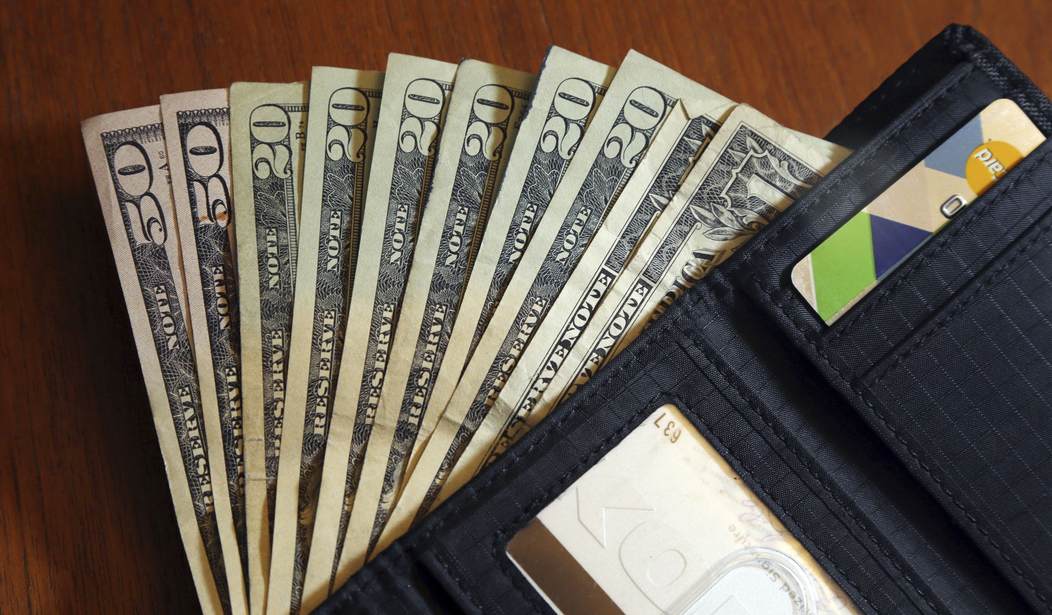The opinions expressed by contributors are their own and do not necessarily represent the views of RedState.com.
When dawn rises tomorrow, all that will be left of Silicon Valley Bank (SVB), the darling bank of venture capitalists and tech companies, will be a rotting husk. As my colleague Joe Cunningham reported, the FDIC is auctioning off the assets with bids due tonight (Federal Regulators Auction Off Silicon Valley Bank While Washington Fears Another Financial Crisis). Under FDIC regulations, the depositor accounts are guaranteed up to $250,000 per account holder. The auction will try to make the account holders whole. The stockholders and creditors of SVB are going to take a massive haircut. But large depositors are going to face massive losses. One of the problems that caused SVB’s demise was its significant holdings in very low-interest Treasury bonds and mortgage-backed securities.
In this environment, Silicon Valley Bank, which had became the go-to bank for start-ups, thrived. Its deposits more than tripled from $62 billion at the end of 2019 to $189 billion at the end of 2021. After receiving more than $120 billion in deposits in a relatively short period of time, SVB had to put that money to work, and it’s loan book wasn’t big enough to absorb the massive influx in cash.
So, SVB did a normal thing for a bank — just under terms that ended up working against it. It purchased US Treasury bonds and mortgage backed securities. Fast forward to March 16, 2022 when the Fed embarked on its first interest rate hike. Since then, interest rates have soared from 0.25% to 4.50% today.
Suddenly, SVB’s portfolio of long-term bonds, which yielded an average of just 1.6%, were a lot less attractive than a 2-year US Treasury Note that offered nearly triple that yield. Bond prices plunged, creating billions of dollars in paper losses for SVB.
Tonight’s auction will be low-yield financial instruments selling at pennies on the dollar, and blood will be in the water because the buyers know that the FDIC’s only goal is to get this crap off its balance sheet ASAP.
Please note that Biden’s inflation is not mentioned…just suddenly, miraculously, Treasury notes had doubled their yield.
When all is said and done, the large depositors, mostly companies holding the money they need for payroll and other expenses in checking accounts, will lose a lot of money. Some of those companies will not be able to secure financing, and they will go bankrupt.
The collapse of SVB might look like a 1% problem that only impacts the coastal-tech-elite. Not true. This impacts small businesses made up of hard-working people making modest mortgage payments in the midwest. This impacts parents putting dinner on the table (2/23)
— Lindsey Michaelides (@lcmichaelides) March 11, 2023
As I reported yesterday in Letting Silicon Valley Bank Melt Down Might Be Painful but It Wouldn’t Be Stupid Like Saving It, there is a concert chorus of voices demanding that the federal government should step in and protect all depositors. The case for a bailout seems to be strictly emotional and doesn’t meet the “systemic risk” criteria needed for the Federal Reserve Board to approve a bailout. Because this bank catered to an industry favored by Democrats that employed a lot of well-paid Democrat donors, Biden’s Federal Reserve might bend the definition. But it shouldn’t.
“I think it’s going to be hard to say that this is systemic in any way,” Sheila Bair, former head of the FDIC, said on NBC’s “Meet the Press.”
The bank’s collapse would cost its shareholders and could trigger economic problems for companies that kept large uninsured sums on deposit, said Anil Kashyap, a professor at the University of Chicago’s Booth School of Business. But that did not mean the broader financial system would be imperiled as it was during the 2008 crisis.
“This isn’t a systemic event. This is a midsize bank that was badly managed,” he said “It may be a little messy. But that’s different than if you have somebody at the core of the financial system stop making payments to somebody else at the core of the system and then the core implodes.”
Capitalism and free markets are messy. They work best when non-idiots are at the helm but manage to plug along no matter what. If the nation decides that the government must insure every penny deposited in a bank, then sure as the sun rises, two things will follow. Next, stockholders and creditors will be protected because it wouldn’t be “fair” otherwise. Next, the federal government will take a much more active role in managing banks bringing with it all that implies.
Deposit insurance is good, it exists, and it continues to exist.
Expanding deposit insurance seems like a fine forward-looking idea to me.
But why would you retroactively insure the uninsured deposits at a bank that’s already gone bust? https://t.co/Y4AEImdknP
— Matthew Yglesias (@mattyglesias) March 12, 2023
Are some investors going to be hurt? Yes. Will some companies go bust and put people out of work? Absolutely. But is the cost of protecting these people worth increasing government meddling in financial markets? In my view, no.













Join the conversation as a VIP Member